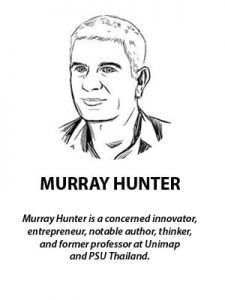Undecided voters will be key to GE15

Any voter apathy will play into the hands of the BN. The opposition has to motivate voters to turn out. The electoral turnouts for the last couple of state elections indicates low voter turnout may be a major election factor.
(FMT) – History has shown that electors don’t really care which side of politics governs, as long as they are perceived to be competent.
When Dr Mahathir Mohamad handed the baton of power over to Abdullah Ahmad Badawi, the Barisan Nasional won 63.85% of the aggregate vote in a landslide victory at the subsequent general election.
Pak Lah, as Abdullah is commonly known, was perceived as a fresh breath of air after 20 years of Mahathir, promising reform and a softer approach to government. Four years later, we saw an electoral tsunami when Abdullah didn’t live up to his promises.
Since then, electors have been savage on PH in a number of by-elections and two state elections, partly because of PH’s failure to live up to the hopes and aspirations of those who elected them to government.
In Johor, BN garnered 42.67% of the vote in a now three-way political environment, where the opposition can be seen to be split into two.
Although Malaysia’s political battlefield is now much more complex than before 2018, with a divided opposition, a hybrid BN-Bersatu federal government, and many new electoral players poised to make an appearance, there are a large number of electors who want some integrity in who governs.
What does this volatile swing group want in government? This is indeed an area of the electoral sphere that requires deep research, and if the major parties have undertaken this research, they’re not telling the public.
We can surmise by anecdote that electors are concerned with good governance, qualified with the phrase “Malaysian style”, the keeping of promises, and with having some accountability.
If one looks at Kelantan, Penang, Sarawak and Selangor as stable long-term governments, the common thread there is that these governments have their agendas and pursue them to the peoples’ satisfaction. If they didn’t command local popularity, they would be out.
The take-away here for GE15 is that whoever is to win the coming election must first win the war of perception with the electorate.
From this perspective, both sides are doing rather poorly, leaving GE15 open.
Ismail Sabri Yaakob, to some degree, is perceived as a seat warmer. He is being politically undermined from within his own party. He is perceived to be struggling to keep his hybrid Umno-Perikatan Nasional government in power.
Electorally, he has been in the shadow of wannabe prime minister Najib, who brings uncertainty to the Ismail team.
Conditions are right for an opposition victory. However, their message is tied to a leader who has yet to come to the fore with a winning persona.
This is going to make for an unusual election campaign, where the centre of action may not be the party leaders, but Najib and PKR deputy president Rafizi Ramli, as proxy leaders. Their game plans appear that way, with Najib goading Rafizi during the PKR congress and Rafizi declaring war on Najib over the congress weekend.
What we know is both men have access to good polling and advisers and are not necessarily shooting from the hip.
The big wildcard here: the large number of court cases going on. Aug 15 looks like being the moment of truth for Najib, and his appeal against conviction on charges of corruption and abuse of power.
There are many twists and turns there.
Umno president Ahmad Zahid Hamidi’s case is also proceeding and implicating more and more politicians as it goes on. Any jailing would have effects on the perceptions of voters.
However, the opposition is not without its own court dramas.
Lim Guan Eng of the DAP and Muda’s Syed Saddiq Syed Abdul Rahman are going through their own court cases, where any negative verdict could create cannon fodder for Umno.
Closer to GE15, these cases will flow directly into the political arena.
GE15 is still open if the opposition can focus on that 15% of the electorate who haven’t made up their minds yet about how they will vote. There is also the possibility, in a non-compulsory voting system, that a large number from this section will just not bother to turn out to vote.
Any voter apathy will play into the hands of the BN. The opposition has to motivate voters to turn out. The electoral turnouts for the last couple of state elections indicates low voter turnout may be a major election factor.
The opposition must issue a manifesto that motivates and captures the imagination of voters. If not, then Ismail can win by default, and his paid-for election machinery on the ground mustering voters on the day.
GE15 will be a very complex campaign with many competing forces out on the hustings. Both sides are still in party intra-politics mode, and are yet to make their pitches to the electorate.
We will really only know how soon GE15 will be from the coming budget.
This will be the first shot across the bow.

